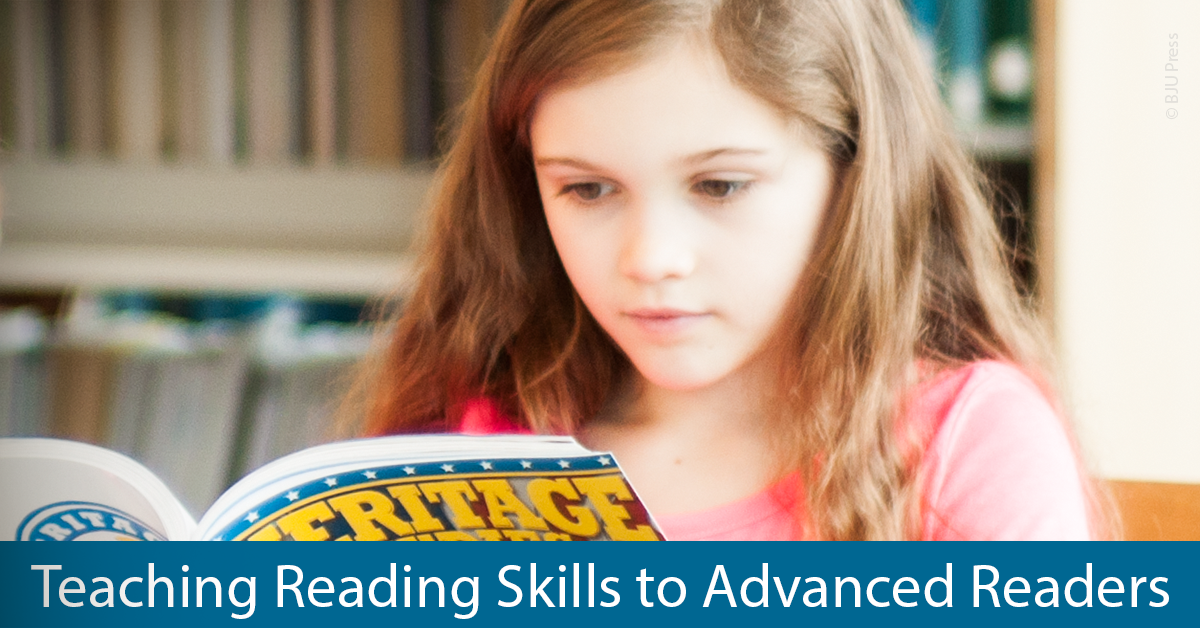Last spring, my daughter’s first-grade class took the Iowa Assessments®. The test confirmed what my husband and I already knew—my daughter excels at reading. At that point she was already reading at a third-grade level, and I have no doubt that her reading skills have only increased since then, considering that she reads during almost every spare moment of the day.
So why am I teaching Reading 2 this year? Why didn’t I skip Reading 2 and go straight to Reading 3? It’s not uncommon for homeschoolers to skip grade levels in certain subjects. It’s also common for homeschoolers to skip the reading curriculum altogether if they have a child who is an avid reader. So why do I use a reading curriculum at all? Why don’t I just let my daughter loose in the public library? Below are some of my thoughts as I struggled with some of these questions.

The Importance of Reading Choices
Many homeschoolers as well as educators in traditional schools write about the benefits of allowing students to choose their own reading materials. They argue that students who make their own reading choices read at a higher reading level than those who read only from a prescribed reading list. They’re right. Allowing students to choose what they read does result in higher reading comprehension. Why? When students are more motivated to read, they tend to choose materials that contain vocabulary they’re already familiar with.
My husband and I do give our daughter some freedom to choose her own reading material. She spends most of her free time reading historical novels that were written for a fourth- or fifth-grade audience. She’s being stretched as a reader, and that’s important.
The Power of a Reading Curriculum
But we knew that we also needed a reading curriculum. We needed a curriculum that would give me opportunities to teach my daughter literary and critical thinking skills so that she can wisely evaluate and appreciate what she reads.
BJU Press’s reading program combines a basal reader with the study of a novel in order to help me accomplish those very goals. I love all the opportunities I have to help her develop literary skills. Right now, in her first reading book, we are reading a dramatized version of the book A King for Brass Cobweb. Before we started reading, we discussed features of drama such as stage directions, the role of the narrator, and the separation of the plot into different acts. We also discussed some key vocabulary words such as what it means to be a citizen. All of that preparation work helped boost both her comprehension level as well as her appreciation for the piece.
BJU Press’s reading program also does a phenomenal job of teaching critical thinking skills. These higher-level thinking skills take time to develop, but they’re a critical part of the educational process. The development of these skills was one of the main reasons we decided to use Reading 2 this year (as opposed to using Reading 3).
Because of my daughter’s reading abilities, I have made some adjustments to the curriculum. I rarely spend any time on phonics although there is a phonics component to almost every lesson. Sometimes we pick up additional books from the library to supplement some of the nonfiction selections. I also use the included Book Activity lessons and Sustained Silent Reading lessons to encourage my daughter to read books that more closely correspond to her reading skills.
An Essential Combination
Letting a child choose his or her own reading materials or working through a reading curriculum are not mutually exclusive approaches to developing reading skills. Instead of pitting one approach against the other, use them both to develop reading skills and passion.
My daughter isn’t bored by her reading curriculum. She has enjoyed the selections that we’ve read and is always eager to start reading class. I am too. BJU Press has made it easy for me to share with my daughter my own enthusiasm for reading, and I’ve enjoyed watching her grow in her ability to critically evaluate and appreciate what she reads. However, I know that a lot of her reading success doesn’t come from the reading curriculum. It comes from her almost constant reading of books and other materials that she enjoys. Through them, she is developing a lifelong love of learning that will keep her mind challenged for years to come.
You can view the BJU Press Reading program I’m using here.